Las Vegas and the call for gun control
Music festival attendees run and take cover after hearing shots fired into the crowd on Oct. 1 when Stephen Paddock, 64, opened fire on the concert attendees; no motive has been found.
The evening of Sunday, Oct. 1, tragedy struck at the Route 91 Harvest Festival in Las Vegas, Nev., when a gunman opened fire from the 32nd floor of Mandalay Bay Hotel and Casino across the street. So far, at least 58 people have been confirmed dead and 515 have been reported to be wounded, making this the worst mass shooting that the U.S. has ever seen.
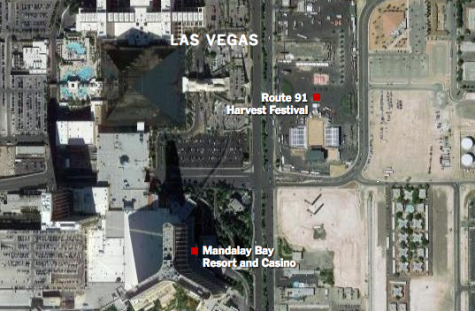
This map outlines the location of the shooter and the festival along the Las Vegas Strip.
This is certainly a time of mourning, for the victims, for their families, and for the nation. However, this is also a time to act. For too long, the issue of gun control has been tabled. Right now, the government needs to focus on implementing stricter laws surrounding the accessibility and use of guns in the U.S.
“There’s a time and place for a political debate, but now is the time to unite as a country,” said White House press secretary Sarah Huckabee Sanders this afternoon. “There’s currently an open and ongoing investigation. A motive has yet to be determined, and it would be premature for us to discuss policy when we don’t fully know all the facts or what took place last night.”
Certainly we need to unite as a country, but if we don’t discuss gun control now, when will we? How many shootings must we witness until change occurs? Pulse, Virginia Tech, Sandy Hook, the list goes on and on.
“Nowhere but America do horrific large-scale mass shootings happen with this degree of regularity,” said Sen. Chris Murphy of Connecticut in response to the events in Las Vegas, remembering the tragic shooting at Sandy Hook Elementary School in his state.
In my opinion, the U.S. should take note of how Australia adjusted its policies after the Port Arthur massacre in 1996, the greatest mass shooting in Australian history. Similar to the U.S., Australia traditionally had a high rate of gun ownership. However, after the horrific events, the ruling Liberal Party worked with groups across the political spectrum to lower the availability of guns.
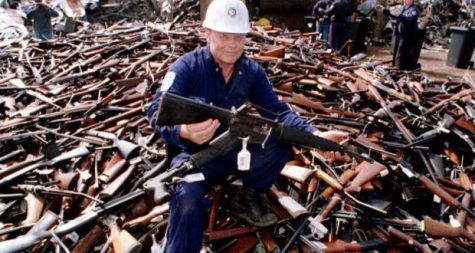
Norm Legg, project supervisor, holds up one of the many rifles collected in Melbourne for scrap on September 8, 1996, after Australia banned all automatic and semi-automatic rifles in response to the massacre.
“The Australian government banned automatic and semiautomatic firearms, adopted new licensing requirements, established a national firearms registry, and instituted a 28-day waiting period for gun purchases,” said Uri Friedman, global affairs writer for The Atlantic, in an article responding to the U.S.’s San Bernardino shooting in 2015. “It also bought and destroyed more than 600,000 civilian-owned firearms, in a scheme that cost half a billion dollars and was funded by raising taxes. The entire overhaul took only months to implement.”
These changes have had a profound impact. According to a report from the Geneva Declaration on Armed Violence and Development, between 1995 and 2006 in Australia, gun homicides dropped by 59 percent and gun suicides dropped by 65 percent. This combination of weapons-collection programs and legislative reform has proved to be effective.
Although the U.S. has more people, more guns per capita, and a constitutional right to bear arms, this doesn’t mean the government shouldn’t try to implement a program similar to Australia’s; it simply means that it will have to do so on a larger scale.
In order to do this, President Donald Trump must take a stand against the National Rifle Association (NRA). The NRA has maintained a firm grip on gun legislation through its many friends in Washington, D.C., and that has to stop. Though taking a stand may cost President Trump some approval points, it’s a far better option than the continuous loss of lives that happens as a result of guns in the U.S.
We deserve to feel safe in our nation, and the best way to ensure this is to implement stronger gun control.




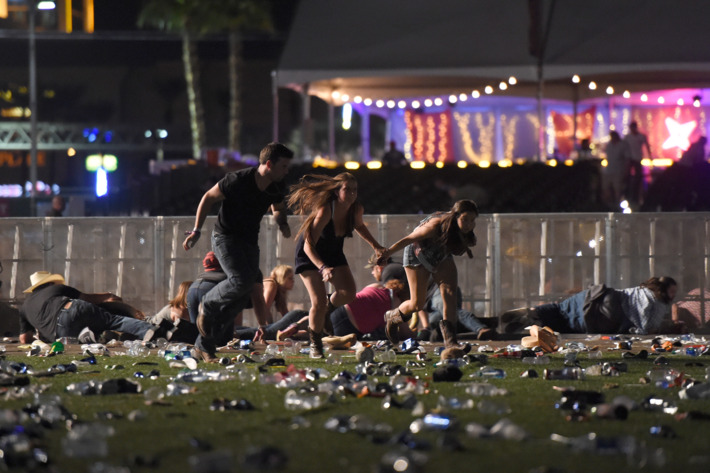



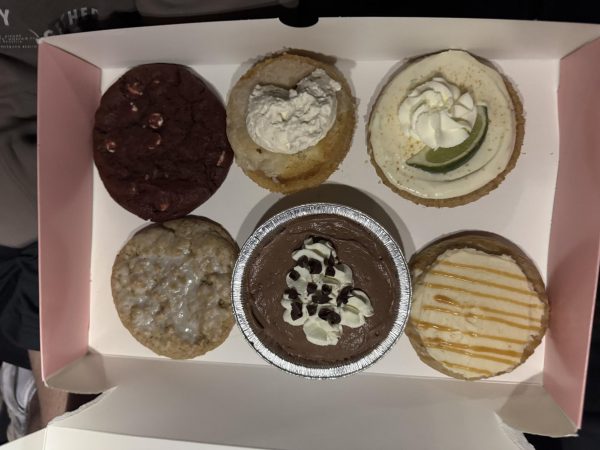
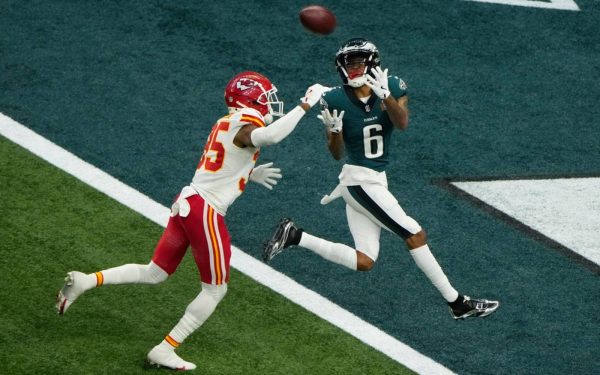




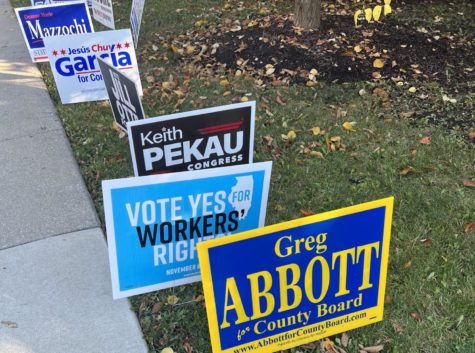
Sachin Shiva • Oct 15, 2017 at 4:11 pm
Charlie, the two statistics are not necessarily related. It’s not statistically significant to determine cause and effect in this situation. For example, I could say that the weather is getting colder and my grades are decreasing. One has no concrete effect on the other because there are so many other variables taking place. Gun ownership might’ve increased but that doesn’t mean gun homicide rates dropped by 49% because of it. Many states and police departments have in those ten years cracked down on homicide rates. Therefore, an increase in gun ownership doesn’t imply a decrease in the gun homicide rate.
Around the world, we have seen that the fewer guns that people possess, the fewer mass shootings there are. Look at the number of deaths caused by guns in Japan in the last few years, less than 20, and the nation has a similar population density to the U.S. and also deals with gang violence.
It’s beyond time to enact common-sense gun control legislation to prevent criminals from acquiring guns.
Charlie Parse • Oct 3, 2017 at 11:22 pm
Taking away Americans guns as well as their Second Ammendment right won’t only give the government even more power, but will most likely increase gun homicide rates. According to the American Enterprise Institute, from 1994 to 2014 gun ownership increased by 59%. However, gun homicide rates dropped by 49%. So if you decrease gun ownership, how do you think the gun homicide rate will respond?